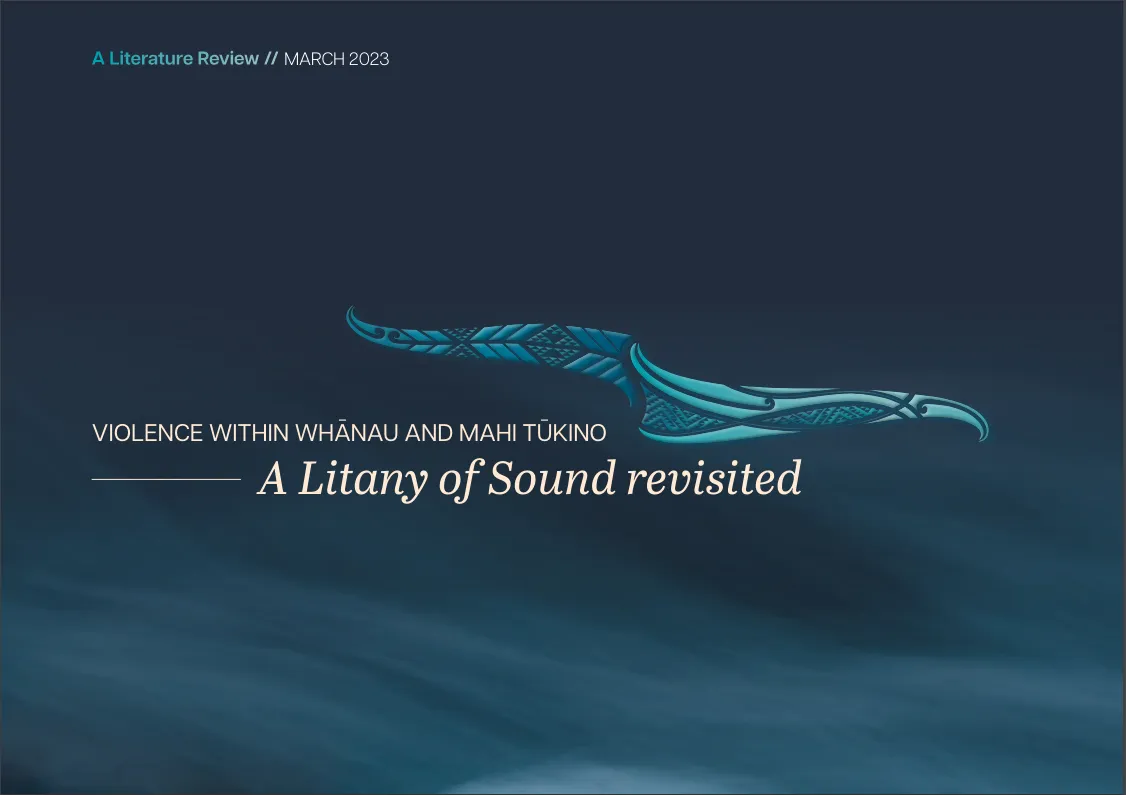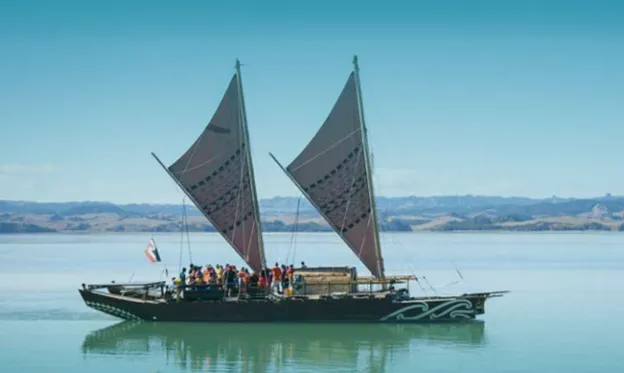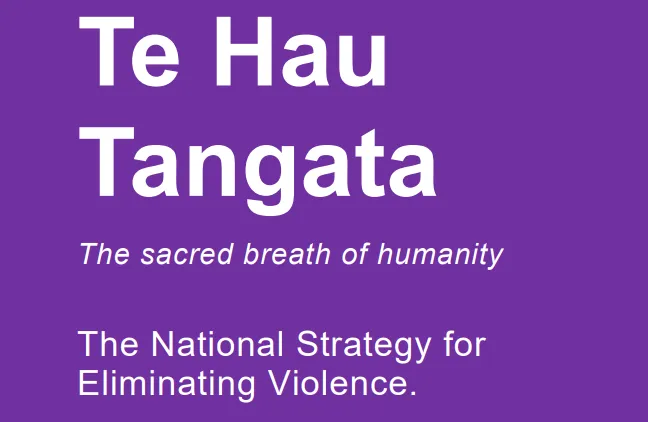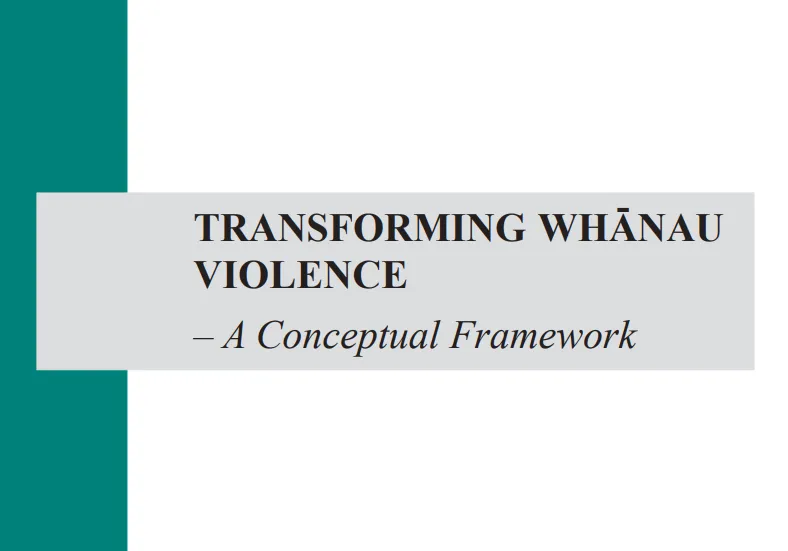Tangata Whenua Ministerial Advisory Board reclaim names gifted to Te Puna Aonui, end of term report released by Te Pūkotahitanga
3
July
2025
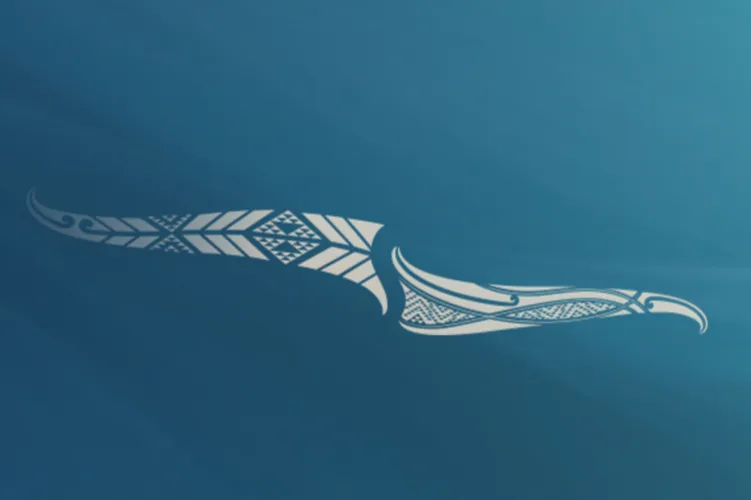

The Minister for Prevention of Family and Sexual Violence has announced her decision not to extend the tenure of the members of the Tangata Whenua Ministerial Advisory Group, Te Pūkotahitanga, beyond 30 June 2025. In its place, Minister Chhour has stated that she intends to establish a new multi-cultural advisory group:
"I need an advisory board that can advise on all issues victim-survivors face, and one that reflects the diversity of our nation, not just the seventeen per cent of New Zealanders who identify as Māori.”
Te Pūkotahitanga members have released a statement responding to the Minister’s comments. This outlines their prior communication to the Minister which informed her that the names Te Pūkotahitanga and Te Puna Aonui, which were gifted by tangata whenua, were being reclaimed.
Poata Watene, Co-Chair of Te Pūkotahitanga, commented that:
“These names were not branding assets — they were taonga, gifted with purpose, tikanga, and expectation. When those responsibilities are no longer honoured, we reserve the right to reclaim them.”
The statement affirmed the decision to reclaim the reo names as “a tikanga-based response to the Crown’s failure to uphold its responsibilities.”
“We uphold tikanga not to exclude, but to ensure solutions reflect the lived realities of the whānau most affected,” said Amokura Panoho, Co-Chair. “We are not stepping back — we are stepping forward to protect the mana of our mokopuna.”
Te Puna Aonui will revert to its legal name, the Executive Board for the Elimination of Family Violence and Sexual Violence.
Official advice given to Minister about the future of Te Pūkotahitanga
A ministerial briefing dated 12 September 2024, proactively released by the Executive Board for the Elimination of Family Violence and Sexual Violence, outlines advice given by officials to Minister Chhour about the future of Te Pūkotahitanga. While officials recommended a review of the Terms of Reference and that the size of the rōpū be reduced, they cautioned against dissolving Te Pūkotahitanga and establishing a new more generalised advisory function.
Officials noted that:
“Te Pūkotahitanga is one of the ways in which the Crown gives effect to Te Tiriti o Waitangi; any changes to its focus – especially without good reason – will likely be seen as undermining the Crown’s Te Tiriti obligations and jeopardising the Māori-Crown relationship.”
And:
“Officials also note the tangible way in which Te Pūkotahitanga contributes to the first Te Aorerekura Action plan (Action 9: Establish a Tangata Whenua Ministerial Advisory Group) and supports Shift 2: Towards mobilising communities. This shift identifies the need to establish foundational and sustainable relationships with tangata whenua, and make commissioning decisions grounded in Te Tiriti.”
The briefing identifies barriers to dissolving Te Pūkotahitanga in favour of a new advisory group including the need for Cabinet approval and new funding, which has not been sought. Existing funding for Te Pūkotahitanga was appropriated to advance Crown-Māori relationships and cannot not be used for initiatives outside of this scope.
No consultation process has yet been undertaken with tangata whenua about the decision not to extend the term of Te Pūkotahitanga.
You can find more Ministerial briefings proactively released in relation to Te Pūkotahitanga on the Executive Board for the Elimination of Family Violence and Sexual Violence website.
Community responses to announcement
The Coalition for the Safety of Women and Children have released a statement. Chair Leonie Morris comments that:
“As an umbrella of predominantly tauiwi-led violence-prevention organisations, the Coalition rejects the idea that removing Te Pūkotahitanga will benefit non-Māori. On the contrary, we agree with the outgoing members of Te Pūkotahitanga that it is by honouring Te Tiriti o Waitangi and upholding Māori solutions that we ensure safety and equity for all communities across Aotearoa.”
Te Whāriki Manawāhine o Hauraki, Te Whakaruruhau Waikato Women's Refuge and The Basket Hauraki (Tangata Tiriti Rōpū) have also released an open letter ‘Standing In Solidarity With Te Pūkotahitanga’. They write that:
“As collectives serving whānau across Hauraki and Waikato, we speak alongside our wider hapori and social service partners, in our concern about the Crown's ongoing failure to honour Te Tiriti based partnership and Te Aorerekura commitments.”
“We call on Minister Chhour and the Government to acknowledge the essential role of Te Tiriti based partnership in addressing family and sexual violence. They must reinstate meaningful mechanisms for tangata whenua leadership and recognise that effective solutions require the expertise and leadership of those most affected.”
Te Pūkotahitanga final report, kaimahi Māori workforce report and other resources
Te Pūkotahitanga have released their final report. The report captures the key insights, achievements, and reflections from their three-year term supporting the implementation of Te Aorerekura: The National Strategy to Eliminate Family Violence and Sexual Violence. It outlines progress made, challenges encountered, and critical recommendations to guide future action by government, iwi, hapū, whānau and communities.
During their tenure, Te Pūkotahitanga also commissioned work from He Whare Wāhine - Te Rau Ora as part of a Workforce Development Project for kaimahi Māori in the family violence and sexual violence workforce. Their report, Whakapakari Kaimahi Māori: mō te oranga me te hiranga (2025), informs a workforce plan and strategy that ensures the sector is equipped to support whānau and communities effectively and sustainably. Key themes include:
- Workforce resilience and development
- System improvements
- The role of hapū and iwi
- Indigenous models of care and practice
- The strategic necessity of kaupapa and mātauranga Māori.
Other highlights from Te Pūkotahitanga’s term also include the publication of Violence within whānau and mahi tūkino – A litany of sound revisited (2023). The comprehensive literature review by Te Pūkotahitanga member Professor Denise Wilson (Tainui, Ngāti Porou ki Harataunga, Whakatōhea, Ngāti Oneone, Ngāti Tūwharetoa), collates decades of contemporary mātauranga from Māori researchers.
You can find the full list of resources developed by Te Pūkotahitanga on the Executive Board for the Elimination of Family Violence and Sexual Violence website.
Background to establishment of Te Pūkotahitanga – a timeline
The following section outlines key milestones and background information about the establishment of Te Pūkotahitanga.
December 2018
Interim Te Rōpū established by Under Secretary Jan Logie to embed Māori leadership and kaupapa Māori approaches in the development of a new national strategy to eliminate family violence and sexual violence.
February 2021
Interim Te Rōpū deliver a draft strategy Te Hau Tangata – the sacred breath of humanity. The strategy is criticised by government ministers as being too focused on Māori. Interim Te Rōpū’s term ends.
March 2021
A collective of kaimahi Māori meet with the Minister for the Prevention of Family and Sexual Violence, Marama Davidson, Chief Executive of the Joint Venture, Fiona Ross, and Secretary of Justice, Andrew Kibblewhite at Pipitea Marae to discuss how the relationship between Māori and the Crown has been impacted by the treatment of Interim Te Rōpū’s work and how to move forwards. Māori call for an enduring, independent Māori advisory body that can speak directly to ministers and not through the filter of officials.
June 2021
The Office of the Auditor General releases its performance audit of the Joint Venture for Family Violence and Sexual Violence. Their report, Working in new ways to address family violence and sexual violence, notes that significant improvement was needed in the way in which the Joint Venture worked in partnership with Māori. It highlighted differing expectations about roles and the nature of partnership, and called for the Joint Venture to reset its relationship with Māori, writing "...to fundamentally change how the Government works with Māori to reduce family violence and sexual violence, the joint venture needs to prioritise working with Māori and Ministers to agree what working in partnership means in the context of the joint venture."
December 2021
A new national strategy for the elimination of family violence and sexual violence, Te Aorerekura, is launched. The strategy states that “The Treaty of Waitangi |Te Tiriti o Waitangi, te ao Māori, and whānau-centred approaches are central to Te Aorerekura”. Under Shift Two, Mobilising Communities it states:
“For tangata whenua, mobilising communities means the Crown fulfilling its obligations under Te Tiriti o Waitangi to enable tangata whenua to have mana motuhake over their wellbeing. Establishing a Ministerial Tangata Whenua Advisory Group will ensure iwi Māori have an enduring, authentic and direct relationship with the Minister for the Prevention of Family and Sexual Violence and can offer clear and unfiltered advice.”
This is affirmed through Action 8 of the first Action plan: Establish a Ministerial Tangata Whenua Advisory Group. At the launch of Te Aorerekura, Minister Davidson announces that Cabinet has approved that such a group be established.
December 2021 – February 2022
Nominations are invited for a Ministerial Tangata Whenua Advisory Group. The nomination process is designed and implemented by Kaitiaki Rōpū, an independent group of kaimahi Māori.
June 2022
Members of the Ministerial Tangata Whenua Advisory Group are announced and appointed by Cabinet for an initial term of three years.
A new name for the Joint Venture, Te Puna Aonui, is also announced. The statement from the Ministry of Justice about the new names notes that:
“The name was gifted to government by tangata whenua and draws on wānanga, including kōrero about light and māramatanga; a place of calm such as an oasis; a place of learning and reflection; and a repository of knowledge.
The new name also recognises the star, Aonui, which represents a path of enlightenment creating markers on the journey from te kore (darkness) ki te ao marama (into the light).”
April 2025
Letters are sent from Minister Chhour to the members of Te Pūkotahitanga informing them that she is not seeking to reappoint any of the current members and that she will seek Cabinet approval to formally disestablish Te Pūkotahitanga.
June 2025
Te Pūkotahitanga’s term ends.
Note: Vine Kaiwhakahaere Dr Charlotte Moore (Rangitāne o Wairau) was a member of Kaitiaki Rōpū, the working group tasked with overseeing nominations of Te Pūkotahitanga Advsisory Group Members.






